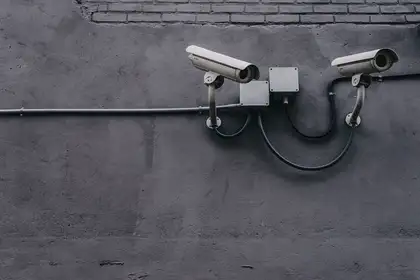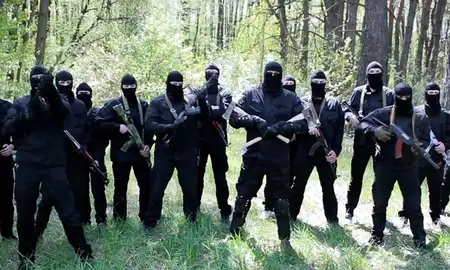
The just-released NZSIS document outlines the main domestic security threats affecting New Zealanders.
Today, the New Zealand Security Intelligence Service (NZSIS) released its New Zealand Security Threat Environment 2023 document. The document outlines the main domestic security threats that NZSIS sees affecting New Zealanders, with focus on ‘how those with malicious intent take steps to undermine our democracy and security.’ The assessment outlines that the two main threats are violent extremism and foreign espionage/interference.
The report sees these two threats as quite separate issues but caused by the same four drivers: increased strategic competition, declining social trust, technological innovation and global economic instability.
The March 2019 Christchurch mosque attack made it clear to the world that Aotearoa New Zealand is not immune to mass atrocity terror events. Since the attack, discussions around the State’s preparedness for counter terrorism and the effect of that preparedness on communities has been a robust and contested public discussion. Certainly, State security has been focused on reporting about how it has responded to the recommendations of the Royal Commission of Inquiry. In a sense, this terrorism discourse is a conversation that we are familiar with, but it remains uncomfortable and contested.
The uncomfortable conversation in this assessment is that it names three state actors as interfering with its Kiwi diaspora and with our democratic processes. That it names Russia and China should be no surprise given this naming is consistent with other recent national security documentation, but naming the Islamic Republic of Iran is somewhat of a surprise.

Associate Professor William Hoverd
Russia is actively involved in interfering with international support for Ukraine. China is named having significant and growing intelligence capabilities active in New Zealand. The report goes on to argue that ‘societal interference is probably the most common form of foreign interference in New Zealand.’
Here it specifically discusses processes designed to subvert communities by deceptive means. Coincidentally, it also mentions the academic sector as a target (institutions, employees and students). It also notes that the Islamic Republic actively engages in societal interference around its diaspora communities and attempts to silence dissenting voices.
It is my strong impression that these claims are not made lightly. This is because the NZSIS must weigh up the net benefit such a naming might gain against its cost. The uncomfortable question being how does this naming of ‘malicious state actors’ impact their respective diaspora communities living in New Zealand? We must assume that the State sees a net benefit from the naming. But for who? The State, the average New Zealander, or those communities? Are suspect communities being created or by naming them are they being protected? Perhaps both?
The answer to such questions is not clear. Neither is the prevalence of such named threats. The report gives explicit examples of these threats as they have occurred within New Zealand, but does not make it clear whether these are isolated incidents or whether we are riddled with active foreign agents.
The report describes declining social trust as a key driver shaping the New Zealand security and intelligence threat environment. Using Treasury data, it argues that trust in the New Zealand Government and traditional institutions is falling. While for government this is a relatively new problem, the New Zealand public and media have had trust issues with the NZSIS for a long period of time, sometimes with good reason.
For this assessment to be truly effective and persuasive, the NZSIS needs to be trusted. This is not an easy task, particularly in a time characterised by declining trust in government.
The report’s findings will not be accepted at face value by everyone. In its foreword, Director-General Andrew Hampton focuses on transparency as a first step to developing trust in the NZSIS. He notes that the NZSIS sees enormous value in sharing more of our insights with the wider public, arguing that, “Heightened awareness allows us all to approach threats to our national security with a sense of confidence and inclusion….that when we get the mix right, we make ourselves a harder target for those that wish to cause us harm.”
These social and security claims made by the Director-General should be a topic of conversation because, while aspirational, they don’t necessarily (and likely cannot) have an evidence base. That the threats to New Zealand now return to a time where there are active state actors involved seems difficult to argue against. What is to be done about foreign interference and the effects of those actions on the people of New Zealand are the bigger unanswered questions.
The report should be read and the potential ramifications of it need careful consideration and research.
Related news
Opinion: National security and defence policy documents position New Zealand in relation to a threatening world
By Associate Professor William Hoverd.

Opinion: Cyberattacks and crime on the rise in New Zealand – What is the Government doing?
On Friday, one of us tried to order pizza, but their ANZ credit card couldn't be processed, because the bank was being submitted to a Distributed Denial of Service attack.

Not just guns and spies – a broader view of security
Security in the 21st century will be determined as much by tackling income inequality and diminishing natural resources as countering terrorism, according to specialists in a Massey University video series on security.
